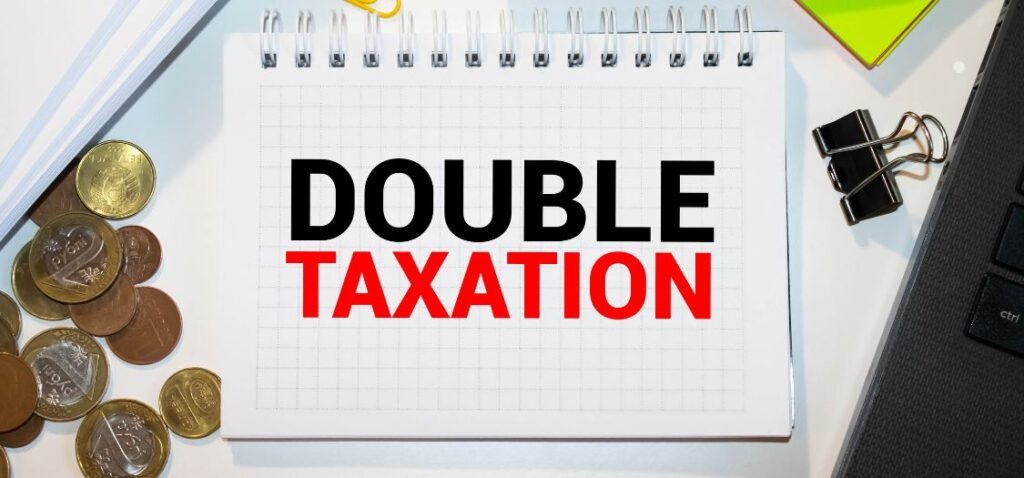Many expats assume they’re only taxed in their home country; unfortunately, that’s not the case.
Without the right tax planning, you could find yourself paying Capital Gains Tax (CGT) in the UK, sometimes even when the asset was sold abroad.
Having an understanding of how CGT works for expats can help you stay compliant, avoid double taxation, and even reduce your overall liability.
In this post, you will find out exactly what to expect and what to do next.

When Does Capital Gains Tax Apply to Expats in the UK?
Capital Gains Tax (CGT) can apply to expats in the UK depending on their residency status and the type of asset sold.
If you’re classed as a UK tax resident, you may need to pay CGT on gains from both UK and overseas assets. But if you’re non-resident, the rules are narrower; CGT usually applies only to UK property or land.
Since April 2015, non-residents have been required to pay CGT when selling UK residential property. And from April 2019, this expanded to include commercial property and indirect property interests, such as shares in a company that derives most of its value from UK land.
Timing also matters. If you return to the UK within five tax years of leaving, you might still be liable for CGT on certain overseas disposals made while abroad under the temporary non-residence rules.
To understand if CGT applies to your specific situation, the first step is to determine your UK tax residency status. HMRC provides a detailed guide through the Statutory Residence Test, which you can use to check this.
Why Being a UK Tax Resident or Non-Resident Matter?
You see, when it comes to capital gains tax in the UK, one of the first things HMRC looks at is your tax residency status. It decides whether you’ll be taxed on just your UK assets or your worldwide gains too.
If you’re non-resident, CGT usually applies only to UK property and land. But if you’re classed as a UK tax resident, the rules expand and your overseas assets (like shares or property abroad) might also be subject to CGT in the UK.
So let’s say you’re an expat who still owns a flat in London and also sells a rental property in the US, whether the UK taxes you on both will depend entirely on your residency status that year.
UK residency is determined using the Statutory Residence Test, which isn’t just about how many days you spend here; it also considers your home, work, and family ties. A few weeks here and there could unexpectedly tip you into ‘resident’ territory.
Knowing where you stand residency-wise can save you from double reporting, unexpected bills, or missed reliefs.
How the UK Handles Overseas Assets and Property Sales
Capital Gains Tax (CGT) can also apply to your overseas investments, depending on your residency status. For UK tax residents, gains made from selling foreign property, shares, or other assets are usually taxable in the UK, even if those assets are located abroad.
Say you’re a US expat living in the UK and you sell a property in Florida or cash out on a foreign investment portfolio. If you’re considered a UK tax resident, those gains may need to be reported to HMRC and taxed under UK rules.
However, if you’ve paid tax on those gains in another country, like the US, you may be able to offset some or all of that amount through the UK’s double taxation relief.
UK residents only pay CGT on the gains, not the entire amount received, and there’s an annual tax-free allowance you can use before any CGT is charged.
For non-residents, the rules are a bit different. In most cases, you’re only liable to CGT in the UK on certain UK-based assets, like property or land. But it’s always best to check with a tax adviser to understand your specific situation.
For official guidance, visit HMRC’s guide on foreign income and gains.
Can You Avoid Double Taxation as an Expat?
One of the concerns for US expats in the UK is the fear of being taxed twice on the same gain by the US, and again by the UK. Thankfully, there are systems in place to reduce or eliminate this risk.
The US-UK tax treaty and the Foreign Tax Credit (FTC) are your key tools here. If you pay Capital Gains Tax in the UK, you can usually claim a credit for that amount when filing your US tax return. This helps reduce your US tax bill so you’re not paying double on the same gain.
In some cases, the Foreign Earned Income Exclusion (FEIE) may apply, but it typically doesn’t cover capital gains, it’s more relevant for wages and salary. Still, combining the FTC with strategic planning can help you legally lower your tax burden across both countries.
It’s also worth remembering that reporting is just as important as reliefs. You’ll need to make sure you’re properly declaring your gains in both the UK and the US and applying the right reliefs or credits. Mistakes or omissions can lead to penalties or missed savings.
You can read more about the US Foreign Tax Credit here on the IRS website.

Conclusion
Paying capital gains tax as an expat in the UK can feel complicated, but when you understand your residency status, the location of your assets, and the available tax reliefs, that can make a real difference for you.
Whether you’re selling property, shares, or other investments, knowing when and where tax applies helps you stay compliant and avoid unnecessary bills.
If you’re unsure how these rules apply to your situation, speaking to a tax adviser with experience in both the UK and US systems can help you make the most of your position. After all, smart tax planning saves money and saves stress.

Meet Mo
Mo is experienced in dealing with clients from start-ups and expanding businesses for UK property investors in the retail and hospitality sector. He also brings his extensive experience in setting up and managing hotels, cafes, restaurants and rental properties across the UK to help clients achieve their business goals and succeed.
He regularly shares his knowledge and best advice here on his blog and on other channels such as LinkedIn.
Book a call today to learn more about what Mo and Monarc Finance can do for you.

